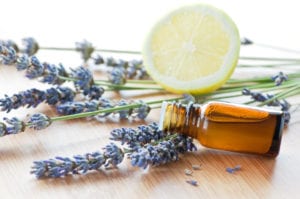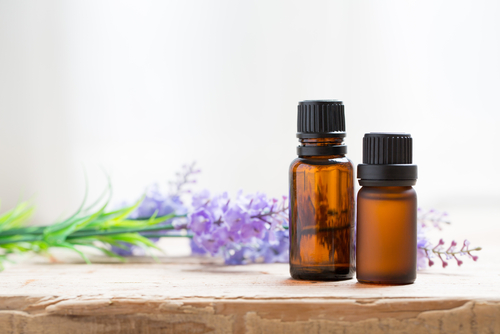The Benefits of Essential Oils
Essential oils are the aromatic, volatile liquids that are distilled from a variety of plants, shrubs, flowers, trees, roots, bushes and seeds. The history of essential oils dates back to ancient civilizations, where the aromatic oils were used for their therapeutic properties. Egyptians, Greeks, Romans and the Chinese used aromatic oils for religious rituals, for perfumes, embalming and as medicines in the treatment of illness. Both the Bible and Torah make reference to the use of aromatics, incenses and ointments ( ex. frankincense, myrrh etc.)
Dr. Rene Maurice Gattefosse, in 1937, was the man who first coined the term, “aromatherapy” and published the first modern book on the use of essential oils in medicine. He wrote, “ Besides their antiseptic and bactericidal properties widely used today, essential oils possess anti-toxic and antiviral properties,have a powerful vitalizing action. and undeniable healing power and extensive therapeutic properties”. Since Dr. Gattefosse’s time, there have been many studies that have shown the antibacterial, antifungal, anti-infective, antimicrobial, anti tumour, anti parasitic, antiviral and antiseptic properties of essential oils. They can help support our immune systems (Serafino et al, 2008), and detoxify the blood by removing toxins (Debersac et al 2001).
Essential oils can be used topically ,i.e., applied directly to the skin, taken orally (as a supplement) or inhaled, via a cold air diffuser (or inhaled directly). They can work on both the mind and body, and therefore can help physical, emotional and spiritual healing. Producing pure essential oils can be quite costly, as it may take very large quantities (up to several thousand pounds of plant material) to extract just a small amount of pure oil.
The benefits of essential oils depends on the diversity of the oil’s constituents or components and also the proportions in any given oil. Lavender oil, for example, has over 200 different constituents; and no, two essential oils are exactly alike. When we are trying to live a holistic lifestyle, we must be careful of the source of the essential oils that we use, i.e. some companies can synthetically copy the constituents of a pure essential oil. (And have not met any standards for medicinal oils). Therapeutic-grade essential oils are steam-distilled, pure, and contain all the desired therapeutic components, without being enhanced with other constituents.
Most essential oils require dilution with some sort of vegetable oil for internal and external use; the amount of dilution depends on the essential oil. Essential oils can used as a single oil, or a blend of different oils (designed to maximize the synergistic effect of various oils), depending on the benefits one is hoping to achieve. All essential oils should be stored in cool, dark places (bottles) to preserve the fragile constituents that may be damaged by heat or sunlight.
There are over 100 different essential oils with various therapeutic effects.
- Clove: antibacterial, anti-parasitic, anti-tumoral, anti-fungal, anti-viral, anti-inflammatory, stomach protectant (ulcers).
- Cypress: improves circulation, is anti-infectious, antispasmodic, and an antioxidant, improves liver health, and respiration. Can help heal broken bones.
- Eucalyptus: antiviral, antibacterial, anti-inflammatory, expectorant, and an insect repellant. Great for sinusitits, bronchitis, and allergies.
- Frankincense: anti-tumoral, immuno-stimulant, antidepressant, muscle relaxant, heals age spots
- Ginger: anti-inflammatory, anticoagulant, digestive aid, anesthetic, expectorant, antifungal. Aids digestion, and reduces nausea.
- Grapefruit: metabolic stimulant, antitumoral, antiseptic, diuretic, fat dissolving, kidney cleansing. (Mix with coconut oil and rub on areas of cellulite)
- Lavender: relaxant, vasodilating, antiseptic, antifungal, analgesic, anticonvulsant, anti-inflammatory (helps heal burns and cuts)
- Lemon: antitumoral, antiseptic, improves microcirculation, immune stimulant, improves memory, relaxant. Can also be used in homemade cleaning products.
- Myrrh: powerful antioxidant, antitumoral, anti-inflammatory, antibacterial, antiviral, anti-parasitic, analgesic/anesthetic
- Oregano: antiaging, antioxidant, antiviral, antibacterial, antifungal, anti-parasitic, antioxidant, immune stimulant, liver protectant. Can be used to quickly get rid of a cold.
- Peppermint: anti-inflammatory, pain relieving, curbs appetite, antibacterial, antiviral, antitumoral, gallbladder/digestive stimulant. Applied to temples to relieve headaches.
- Rose: anti-inflammatory, anti-HIV, antioxidant, hepatoprotective, relaxant, reduces scarring, antiulcer, antiulcer, DNA dammage prevention. Great for skin: add a few drops to your moisturizer. It is one of the most expensive essential oils ($1000/15 ml)
- Rosemary: liver-protecting, anti-inflammatory, antitumoral, antifungal, antibacterial, hypertension modulator, mental clarity/concentration. Can be used to thicken hair- add to homemade shampoos. Also used to to improve memory/brain function.
- Tea tree oil: antibacterial, antifungal, antiviral, anti-parasitic, anti-infammatory. Used topically to treat acne.
- Sandalwood: antitumoral, antibacterial, antiviral, immune stimulant. It is a natural aphrodisiac, that can improve libido.
Many essential oils can be made into natural household products, like all purpose cleaners, wood polishes, glass cleaners, deodorizers, toothpaste, and disinfectant sprays. Essential oils can also be used as perfumes, and added to personal care products like moisturizers. For those people looking to reduce the amount of harmful chemicals and cleaners in their homes, essential oils are a great alternative. They are safe, economical and very effective. Some people even use essential oils on their pets, for example: lavender can help dogs with car sickness, and allergies, and to also to get rid of ticks. For animals it is important to dilute the oil, only use them topically, and watch the skin for an sign of sensitivity or reactions.
Clinical research continues to uncover the enormous potential of essential oils in treating various conditions and offer a natural solution for these diseases and ailments. As of 2013, over 12,000 medical studies are cited in the U.S. National Library of Medicine (the largest medical library in the world) on essential oils. The health supporting benefits of essential oils will continue to evolve, as studies uncover more uses for these amazing natural substances.



